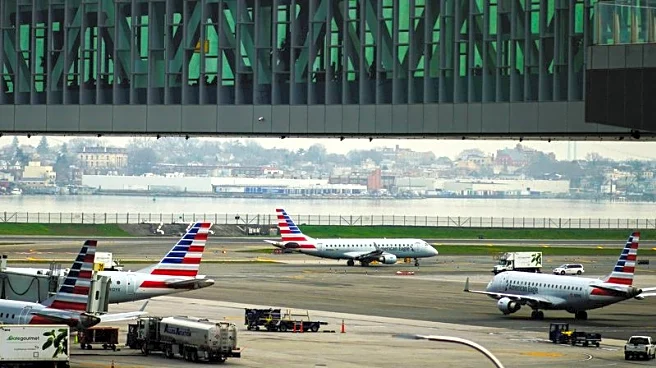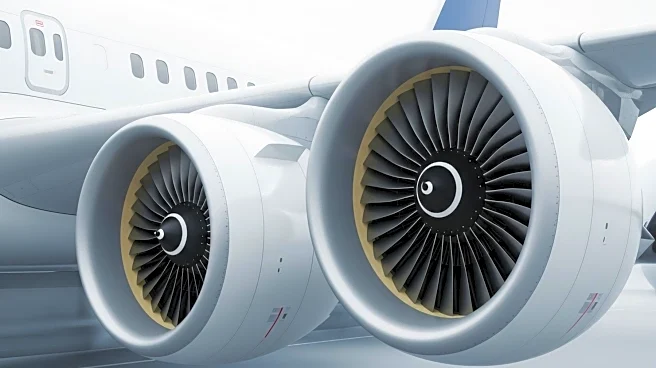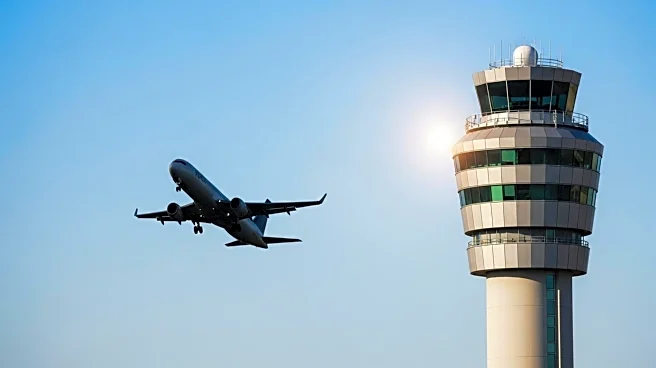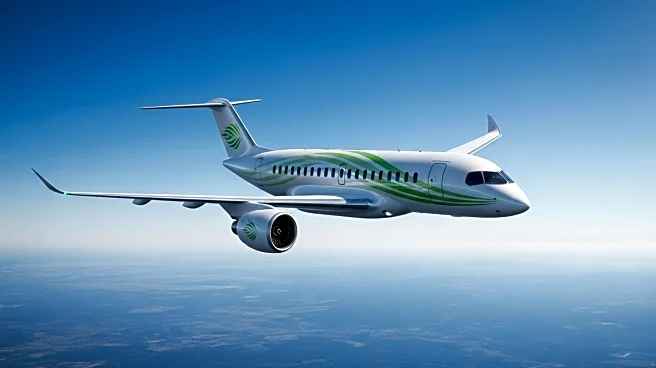What's Happening?
FlightSafety International, a leader in aviation training, is expanding its offerings to meet the growing demand for skilled pilots in business aviation. The company has refined its training programs, investing in skilled instructors and advanced technology to support pilots throughout their careers. FlightSafety International provides training for popular aircraft such as the Bombardier Challenger and Gulfstream models, ensuring pilots are prepared for both routine and challenging scenarios. The company has also partnered with GE Aerospace to utilize Corporate Flight Operations Quality Assurance data, enhancing training events to address industry risks like runway excursions and loss of control inflight.
Why It's Important?
The expansion of FlightSafety International's training programs is crucial for maintaining high safety standards in the aviation industry. By investing in skilled instructors and leveraging advanced technology, the company ensures pilots are well-prepared for various scenarios, reducing the likelihood of accidents. This development supports the growing business aviation sector, which requires highly trained professionals to operate increasingly complex aircraft. The partnership with GE Aerospace further enhances safety by addressing prevalent risks, benefiting flight departments and passengers alike.
What's Next?
FlightSafety International is likely to continue expanding its training offerings, incorporating more advanced technologies and partnerships to further enhance safety and efficiency in aviation operations. As demand for skilled pilots grows, the company may increase its instructor cadre and develop new courses to address emerging challenges in the industry. Flight departments may seek to collaborate with FlightSafety International to ensure their pilots receive the best possible training, contributing to overall aviation safety.
Beyond the Headlines
The emphasis on advanced training and technology by FlightSafety International highlights the broader trend of integrating data-driven approaches in aviation safety. This shift may lead to long-term improvements in pilot training methodologies, influencing industry standards and practices. The focus on safety and efficiency could also drive innovation in training devices and simulation technologies, setting new benchmarks for aviation training providers.












